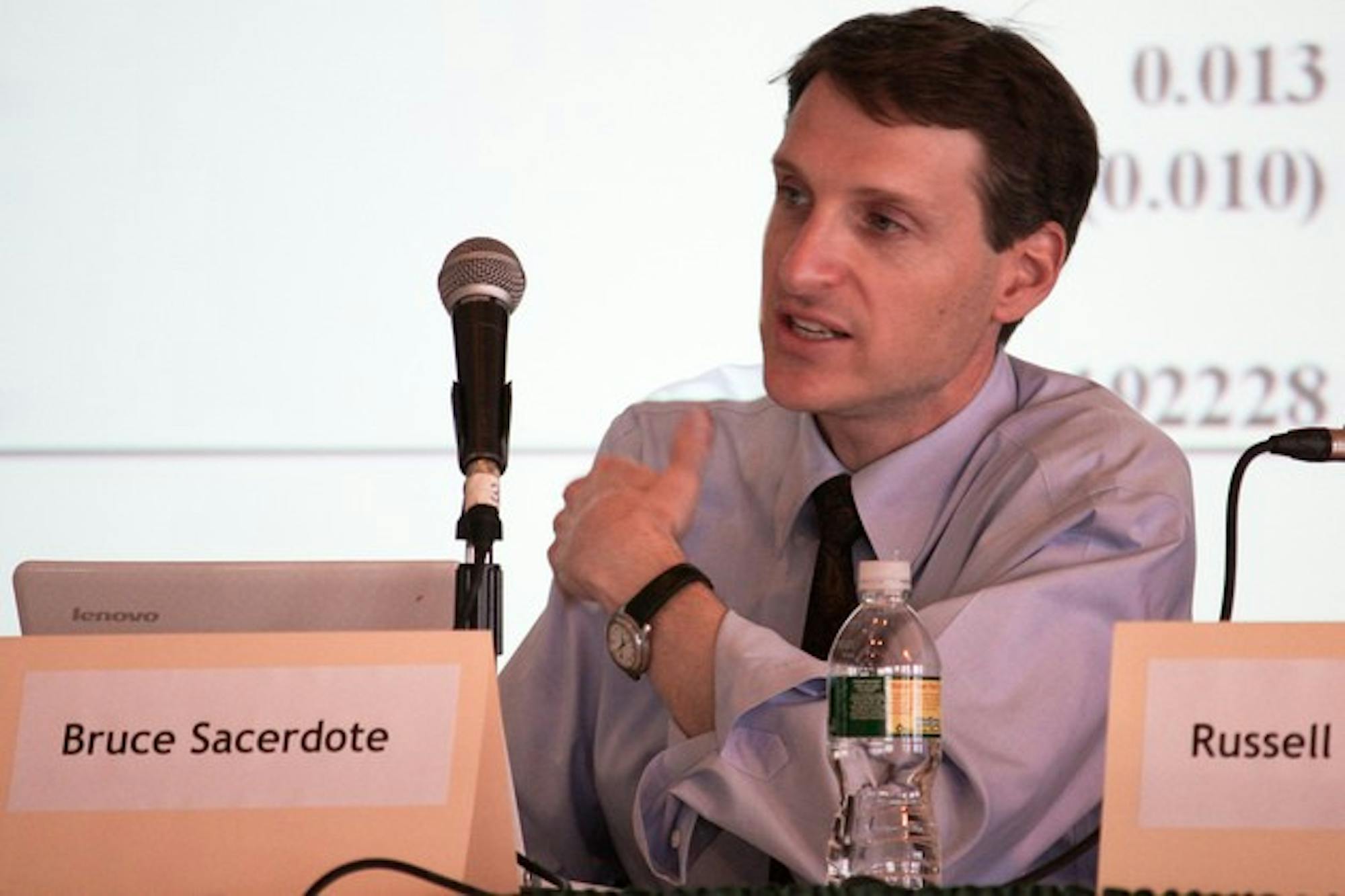Economics professor Bruce Sacerdote, Dartmouth Medical School research professor Fran Norris, playwright Mildrid Ruiz-Sapp and Ibrahim Elshamy '09 agreed that because the components of disaster relief are so complicated, it is difficult to determine the extent of the Federal Emergency Management Agency's responsibility to victims of the 2005 Gulf Coast disaster.
In the aftermath of natural disasters, local communities should form partnerships with federal aid agencies, Sacerdote said. The federal government tends to be less able to help small numbers of people in a specific place a task to which local communities are much better suited.
FEMA did not have the sole responsibility in terms of rebuilding infrastructure after Katrina, Norris added.
"FEMA is not charged to be first responders," she said. "That's a local responsibility."
The federal government should be prepared to lead relief efforts in the absence of a cohesive local response, but has not yet learned how to execute disaster relief effectively, according Ruiz-Sapp,
"The systems have not been put into place," she said. "The greatest fear is to know that the government is not there for you, the people you depended on are not there for you and the resources you have are nothing."
Ruiz-Sapp is a founding member of UNIVERSES, a theatrical ensemble that incorporates notions of social justice into its performances. UNIVERSES is scheduled to perform at the Hopkins Center this week.
Elshamy acknowledged the desire for outsiders to help the disaster-stricken area, drawing from his experiences volunteering to rebuild houses in New Orleans in 2005, but said he noticed the negative effects of poor resource management.
"There was a lot of trash [in New Orleans]," Elshamy said. "Interestingly, some of this trash is the result of good will. There's not a lot of places where these things can go and the system was overwhelmed. This goodwill sometimes turned into extra liability for the place."
Government agencies' inability to act efficiently in relief efforts was largely the result of human actions and social problems, according to Sacerdote.
"Such a disaster is not just a natural disaster. It's a disaster that humans created," Sacerdote said.
Likewise, national news outlets' reporting drastically exaggerated the importance and effect of race in the outcome of relief efforts, Norris said.
"There has been a tremendous amount written about race and Katrina, but it's not as simple as people make it seem," she said. "There were some inaccuracies in reporting, and there's a certain laziness about how events are reported that feeds into this a lot. We are quick to believe it."
The discussion, "Recovering from Hurricane Katrina: Who Got Left Behind?" was moderated by history professor Russell Rickford and co-sponsored by the Hopkins Center and the Tucker Foundation.




